Trump Nato spending claims in dispute
- Published
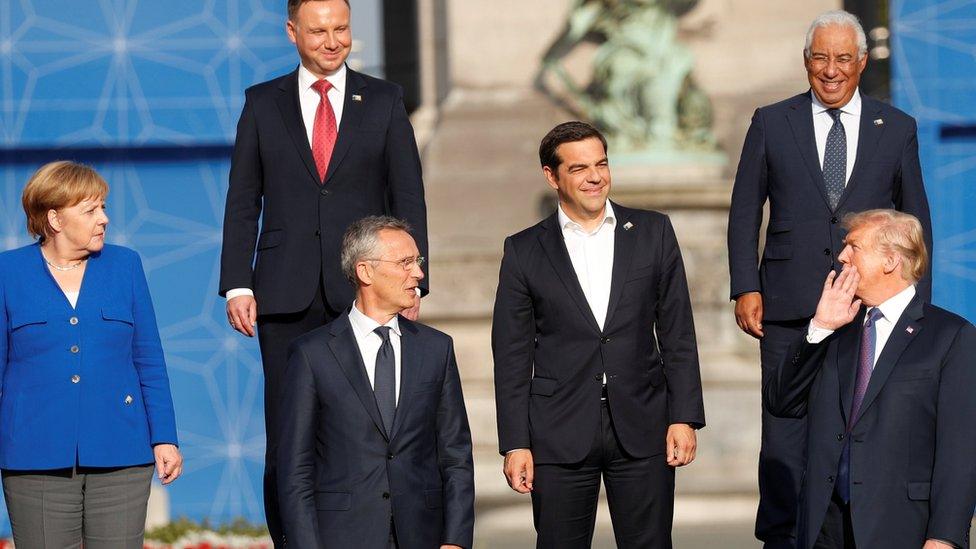
Donald Trump (far right) says Nato members would "substantially" up their budgets
Nato allies have cast doubt on US President Donald Trump's claim they had pledged to "substantially" raise their defence budgets, saying they simply remained committed to a 2014 deal.
Nato chief Jens Stoltenberg told US broadcaster CNN the allies had "a commitment to spend 2%" of their annual output (GDP) on defence budgets.
Members agreed four years ago they would all reach that target by 2024.
Mr Trump had hailed "tremendous progress" at Nato's summit in Brussels.
He has previously been highly critical of the alliance, complaining the US pays more than others.

The Trump method
by Jonathan Marcus, BBC diplomatic correspondent
Welcome to Trump world. His press conference at Nato ranged from bluster to the bizarre but there is no doubting the president has had an effect.
There was "a new sense of urgency" about increasing defence spending according to Jens Stoltenberg.
But just how much extra money there will be and how quickly remains to be seen.
Just as with his summit in North Korea, reality appears to be what President Trump decides it to be.
The mere fact that the president of the alliance's essential member could even entertain the idea that the US might leave Nato is extraordinary.
But by the end of the summit he said he believed in the alliance. This dissonance is at the heart of the Trump method. He gets results - or appears to - by both strengthening and weakening the alliance at the same time.
Nato leaders will be glad this summit is over but remain uneasy as to just what Mr Trump might say when he meets Vladimir Putin in Helsinki.

What happened in Brussels?
Exactly what took place - and what was agreed - behind closed doors at the two-day Nato summit in Brussels is not known.
What is known is that Mr Trump called for an emergency meeting on Thursday morning with other Nato members.
Unconfirmed reports suggested Mr Trump had threatened to go it alone if other nations did not meet the alliance's target of 2% of their GDP by 2024.
But by the time Mr Trump held a press conference, he was hailing the summit as a success.
What is Trump's version of events?
"We made a tremendous amount of progress today," he said. "It has been really amazing to see the level of spirit in that room."
It was, he said, "presently unnecessary" to consider quitting Nato.
Donald Trump: "The United States was not being treated fairly"
He added the US commitment to Nato - which was established in 1949 with members agreeing that an attack against one would be considered an attack against them all - remained "very strong".
Mr Trump went on to say the allies had "substantially upped their commitment" and would pay "more quickly".
Mr Stoltenberg, he added, gave him "total credit" for the increased spending which, he said, he instigated during his first Nato meeting last year.
What do others say?
Mr Stoltenberg said members had had a "frank and open discussion" which "created a new sense of urgency", and that the "clear message from President Trump" was "having an impact".
Italy's new Prime Minister, Giuseppe Conte, Canadian Prime Minister Justin Trudeau and French President Emmanuel Macron also made it clear they had not signed up to anything more than what was agreed four years ago.
"Everyone agreed to raise spending, in line with commitments made in 2014," Mr Macron said, adding he was unconvinced by proposals to increase it to 4%.
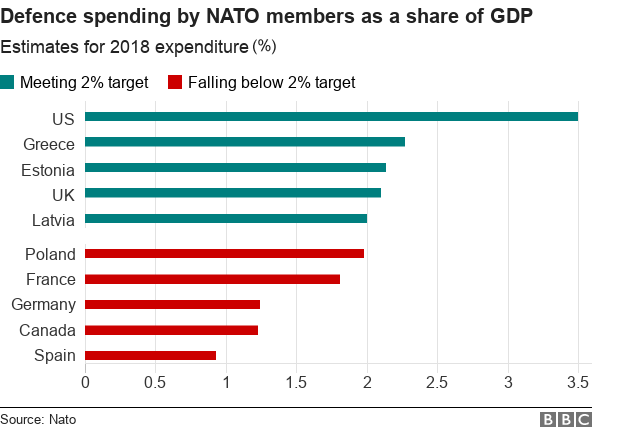

He said France had a clear strategy of analysing security threats and that he could not ask his government for "tens of billions more" beyond that.
"It's taxpayers' money we're talking about," he said.
President Macron also said the meetings had had a different tone to Mr Trump's early morning tweets, which had been typically critical.
Allow X content?
This article contains content provided by X. We ask for your permission before anything is loaded, as they may be using cookies and other technologies. You may want to read X’s cookie policy, external and privacy policy, external before accepting. To view this content choose ‘accept and continue’.
Allow X content?
This article contains content provided by X. We ask for your permission before anything is loaded, as they may be using cookies and other technologies. You may want to read X’s cookie policy, external and privacy policy, external before accepting. To view this content choose ‘accept and continue’.

Mr Macron said the conversations had been more respectful, according to Reuters news agency.
At the meeting, Mr Trump singled out Germany for criticism over its defence spending.
Some reports suggest he also shocked other leaders in the room when he turned to German Chancellor Angela Merkel and referred to her by her first name.
What else was Nato talking about?
The Nato leaders also turned their attention to the conflict in Afghanistan.
Afghanistan's President Ashraf Ghani was present for the second day of talks, and Mr Stoltenberg hopes the bloc will agree to fund Afghan security forces until 2024.
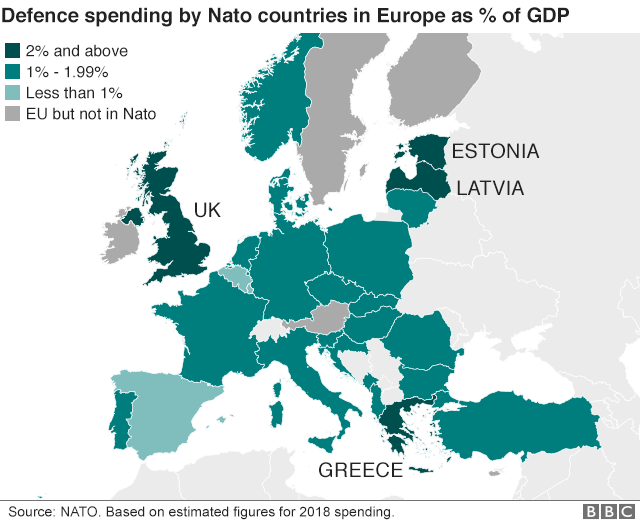

- Published18 February
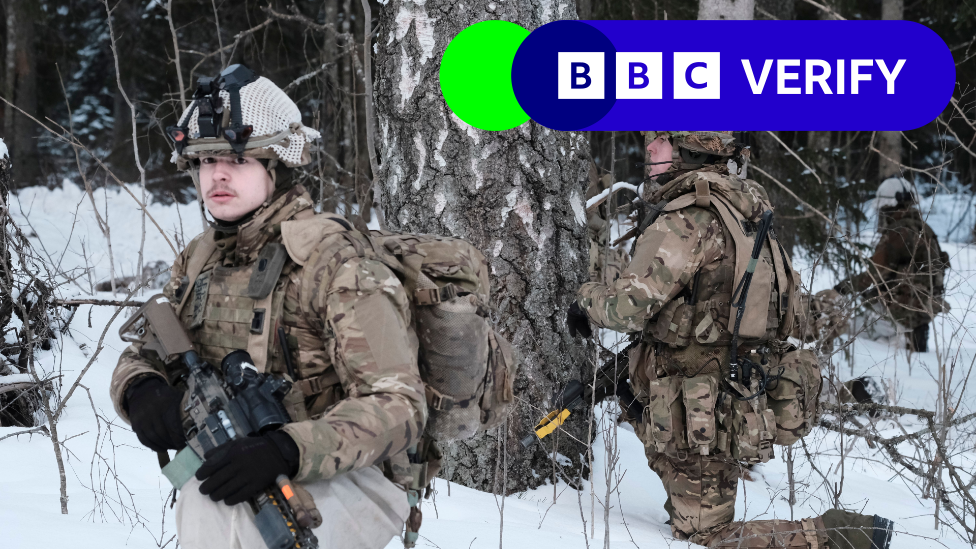
- Published11 July 2018
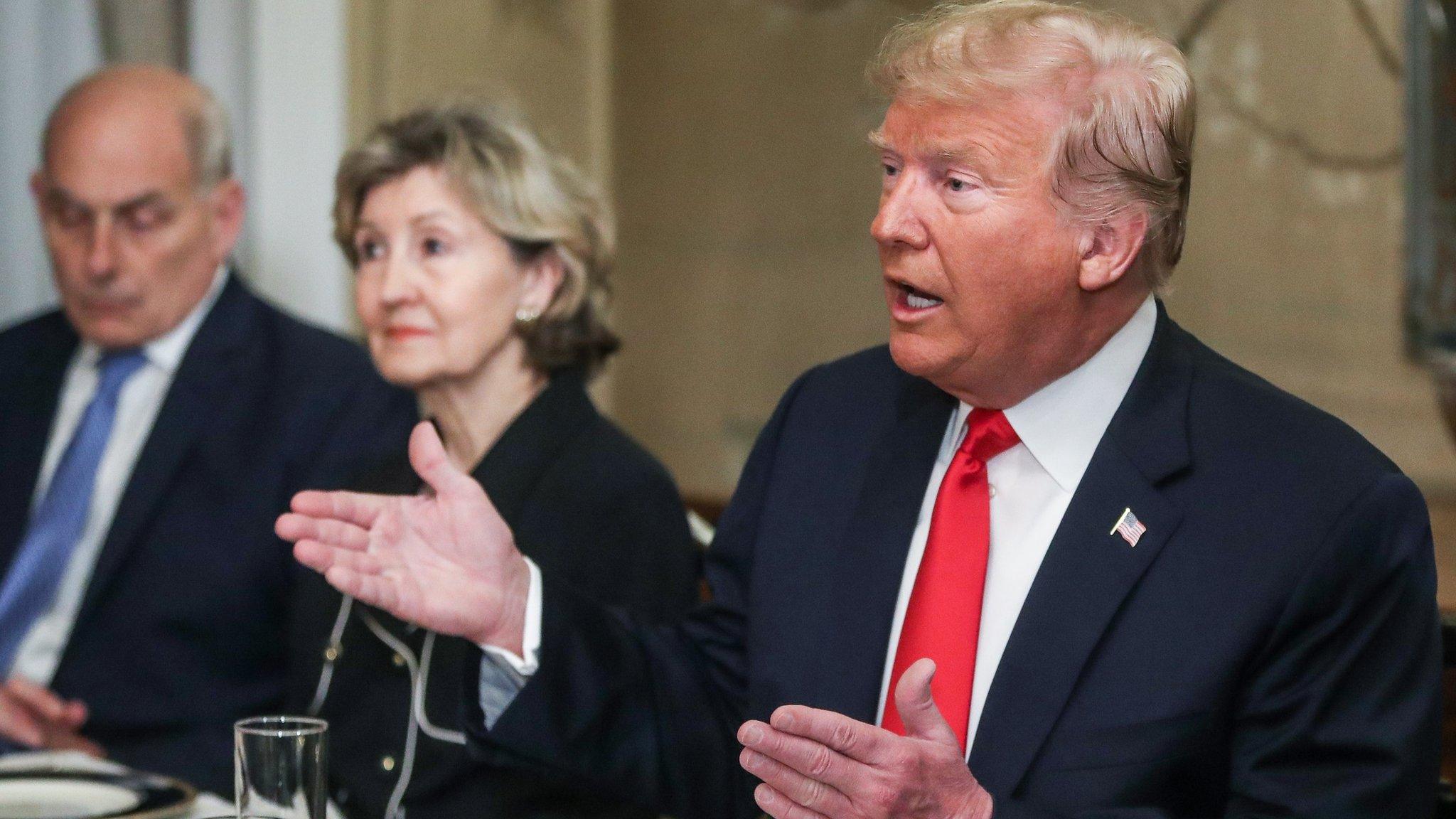
- Published7 June 2018
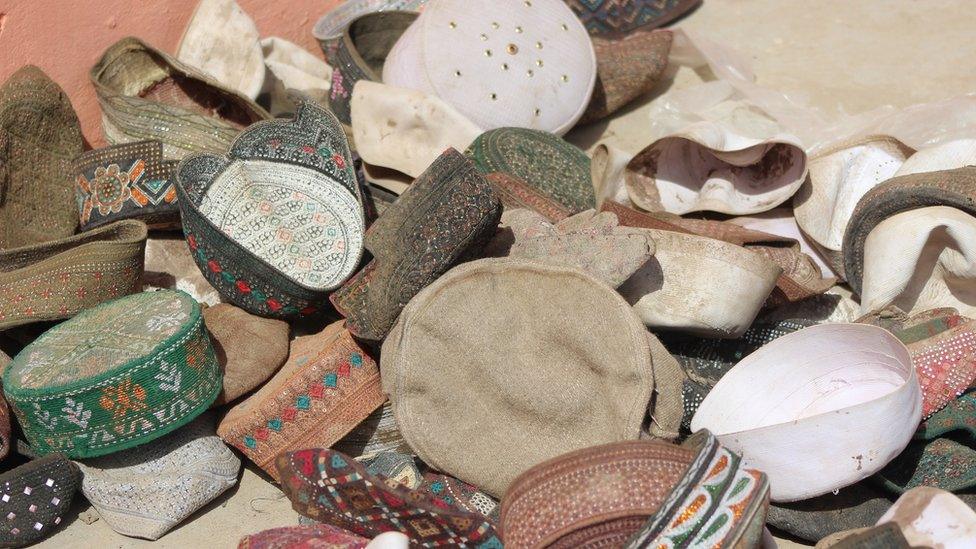
- Published11 July 2018
- Published31 January 2018
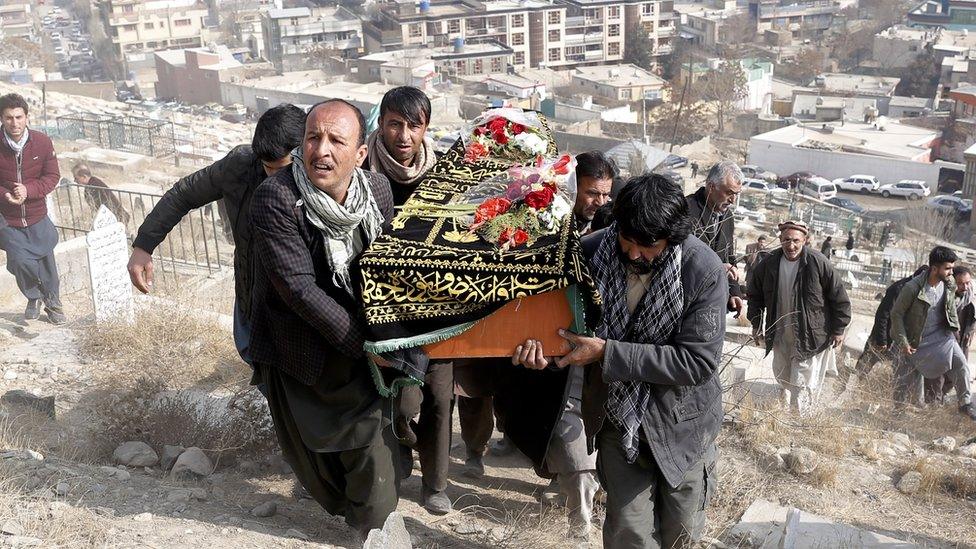
- Published10 July 2018
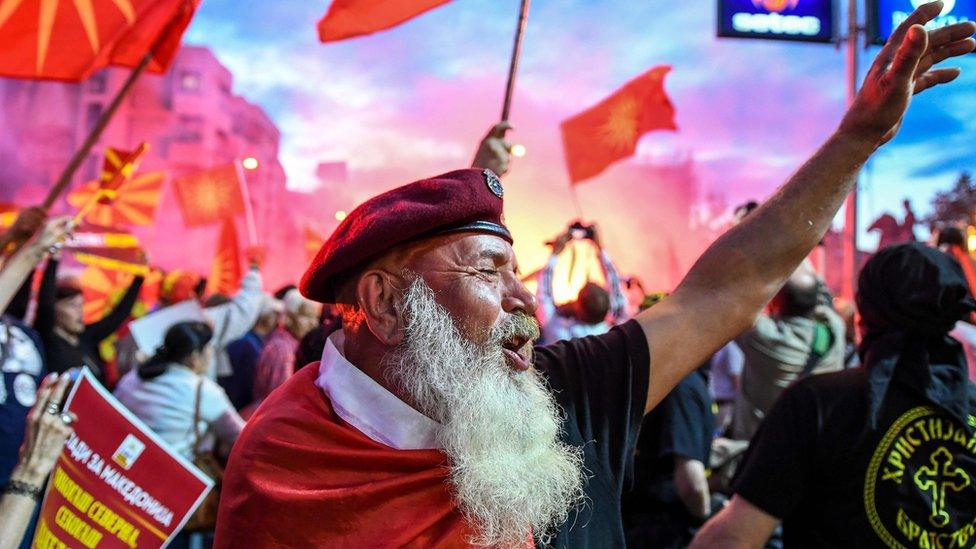
- Published12 July 2018
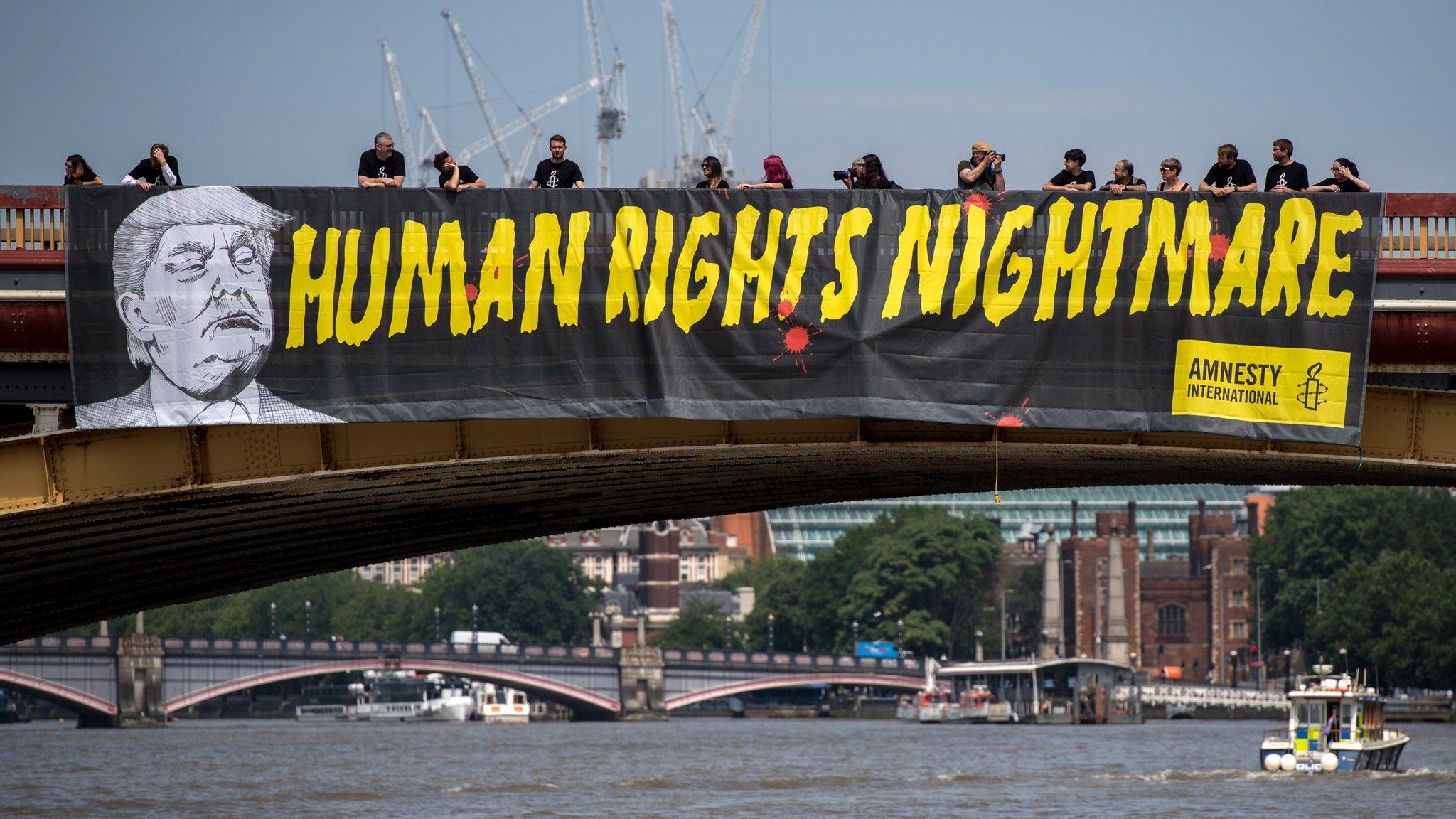
- Published11 July 2018
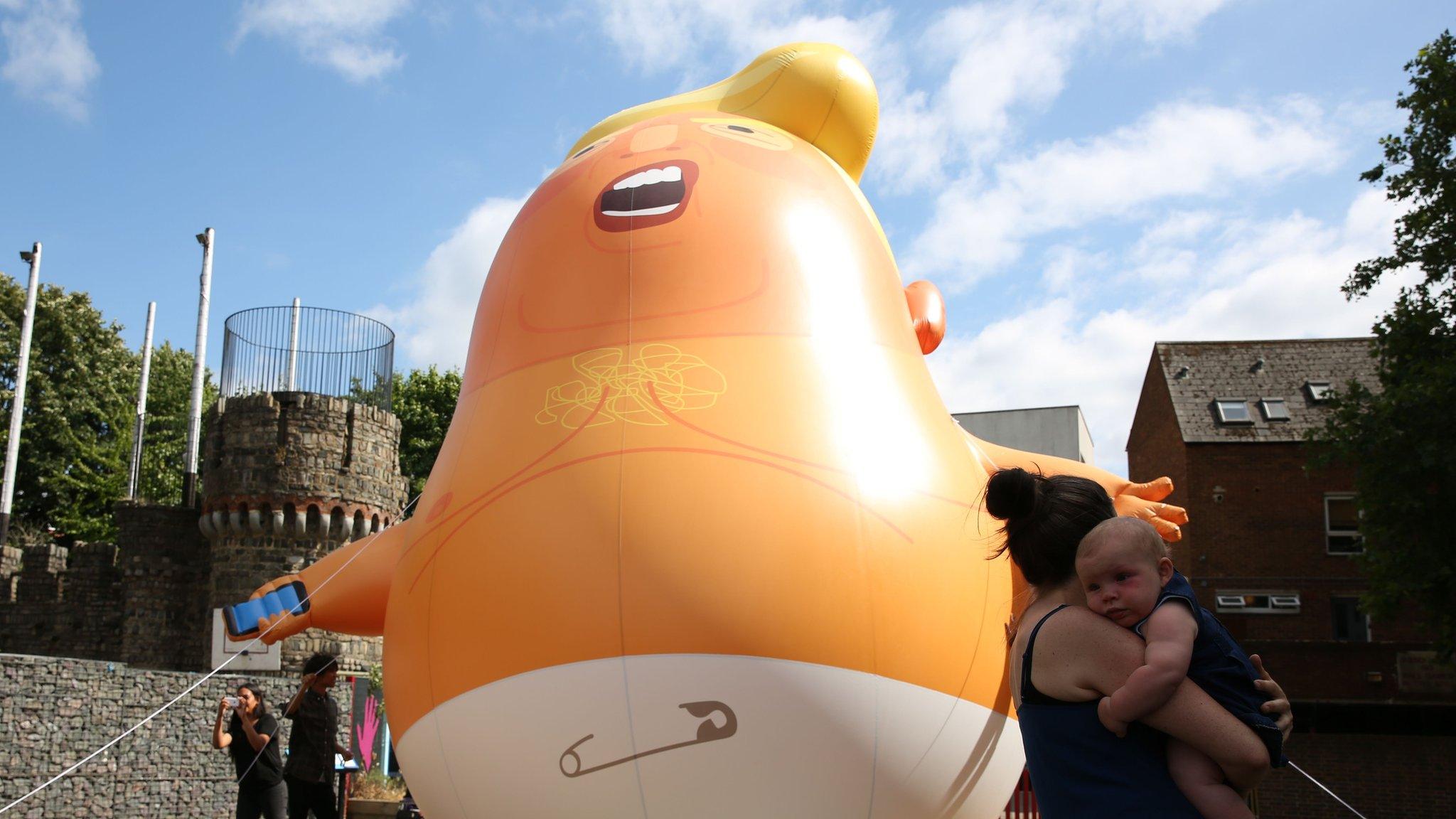
- Published11 July 2018
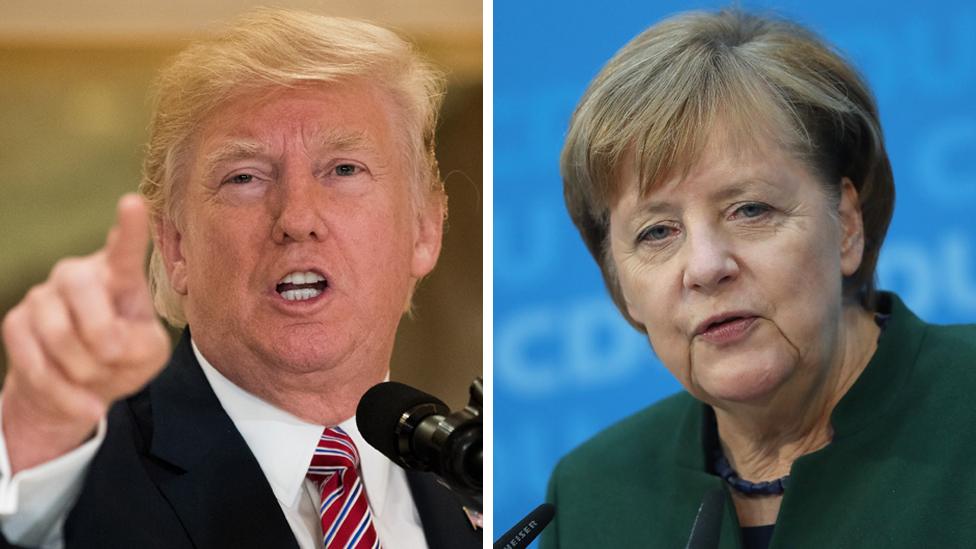
- Published9 July 2018